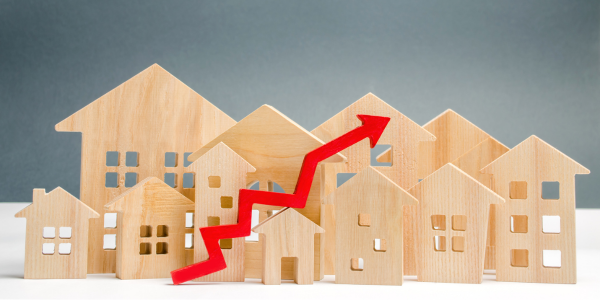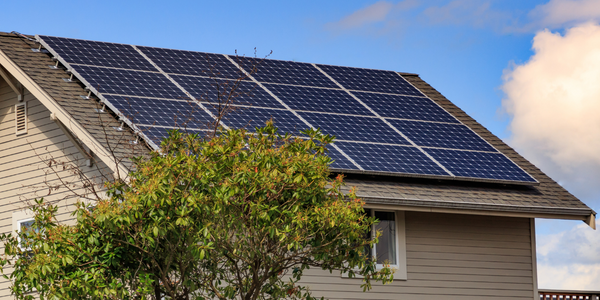
New Zealand's property market appears to be in a holding pattern as investors and home-buyers wait to see what will happen next following changes to the LVR. The property market is changing compared to how it was a year ago. And Property Institute of New Zealand chief executive Ashley Church says Reserve Bank LVR restrictions are a devastating failure for first home buyers. All this in our October property article.
Buyers wait and see
According to property data firm MyValocity, house price growth is in the double digits, particularly in the regions around Auckland.
In Tauranga house prices have risen 27.8 per cent year on year, while in Hamilton house price growth is up 26.4 per cent. Meanwhile, in the main centres of Auckland, Wellington and Christchurch, house prices have increased by 8 per cent, 12.9 per cent and have decreased by 0.5 per cent respectively.
As property prices continue to rise, buyers remain hesitant adopting a “wait and see” approach. Nationwide, the number of investors has dropped slightly over the past three months, likely due to the change in LVR rules now requiring investors to hold a 40% deposit wherever they are in the country. First home buyer numbers remain unchanged.
A change to the property market
The traditional “spring lift” in the property market which usually occurs at this time of year has not happened. Data from realestate.co.nz shows new property listings across the country were down by 12.2 per cent in September compared to the same time last year.
Typically, at this time of year housing activity lifts after a slow winter, with more properties being listed. Instead, house price growth appears to have slowed year on year, and the Auckland housing market is subdued. Tighter lending restrictions and the perception that property is fully-priced is likely slowing down housing activity.
Auckland asking prices hit an all-time high at $933,435, an increase of 2.8 per cent on August, and properties that are available are now taking longer to sell. There’s a definite shift in buyer sentiment from a “must buy now at all cost” to a more considered view of the options available.
In the Waikato total housing stock levels have plunged by 31.9 per cent compared to the same time last year, and in the Wellington region new property listings have fallen by 8.1 per cent in September.
LVR exemptions for first home buyers
Property Institute chief executive Ashley Church says first-home buyers should be exempt from the restrictions, and it should be up to the lender to decide what deposit was required to buy a house.
"The experiment that was entered into by the Reserve Bank a little less than two years ago, of applying LVRs to first home buyers, not only hasn't worked, but was done on some pretty spurious grounds, and it's now constituting a very large fiscal experiment that could be expensive for a large part of the New Zealand population."
Mr Church said it was very unlikely that there would be a correction in the New Zealand property market without direct action.
A number of mortgage professionals are backing the call for an exemption of the LVR rules for first home buyers, saying the restrictions have had a devastating effect on first home buyers, allowing property investors the chance to snap up homes that families might have otherwise bought.
According to the Reserve Bank lending to property investors in Auckland fell 18 per cent last month following the introduction of new lending restrictions. Lending to owner-occupiers in Auckland also fell last month, while total lending across the country fell 3 per cent.
Figures released by Statistics New Zealand earlier this month show nearly 80 per cent of renters in New Zealand cannot afford to save for a home deposit, and under Reserve Bank rules, first home buyers require a 20 per cent deposit.
While changes to the HomeStart Grant scheme have seen house price caps raised to $650,000 in Auckland, and $550,000 in the rest of the country, income caps of $85,000 for a single person and $130,000 for a couple still shut out a number of first home buyers, who may be earning higher incomes but are still not in a position to save for a first home deposit.
Get professional advice
Getting into your first home can be a stressful process. With changes to lending restrictions, it can be tricky staying on top of the most up to date information and regulations. Get in touch with one of our mortgage advisers to make your home buying process simpler.
House prices are up and buyers are hesitant
Topics: Property Investment, First Home, Property Article, LVR, Investors, Home Buyers 0Related posts
Since October 2013, when the Reserve Bank of New Zealand (RBNZ) first introduced loan-to-value ratio restrictions (LVR), home buyers in New Zealand have been grappling with deposit requirements. LVRs play a vital role in home loan assessment and can determine how much home buyers may be able to borrow from a lender. In this comprehensive guide, find out what LVRs are and what exemptions may apply, how LVRs impact home buyers, and how to get around LVRs.
A change in government could see more opportunities open up for property investors in New Zealand, with adjustments to the Brightline Test, removal of the foreign buyer ban, and a reinstatement of interest deductibility just some of the policies being considered. Find out how these possible changes could reshape the property market landscape and what the overall impact would be for property investors.
New Zealand’s housing market has seen its fair share of ups and downs over the years, with the most recent drop in property prices linked to interest rate rises and cost of living pressures. But the tide may be turning, and there’s growing evidence to support a property rebound sooner than anticipated. Buyers choosing to wait for property prices to go lower should consider the impact that decision could have on borrowing power once property prices go up.
Property values may be falling across New Zealand’s main centres*, with demand largely being restrained by the Reserve Bank’s interest rate hikes, but, not surprisingly, first home buyers are feeling positive about more opportunities to get into the property market. For existing homeowners, the outlook for property remains positive too, as factors such as interest rate, a thriving labour market, strong migration, and a downturn in supply continue to drive demand, ensuring property remains a safe bet.
Demand for housing in New Zealand may be at an all-time high, but recent climate change and extreme weather events have highlighted the importance of sustainable design when it comes to future building projects. Green buildings, eco-homes and sustainable design must be considered, while environmental responsibility and resource efficiency is critical if we are to preserve the future of housing in New Zealand. Read on to find out what green building is, what the benefits are, and how New Zealand can prepare for a sustainable future in building.







